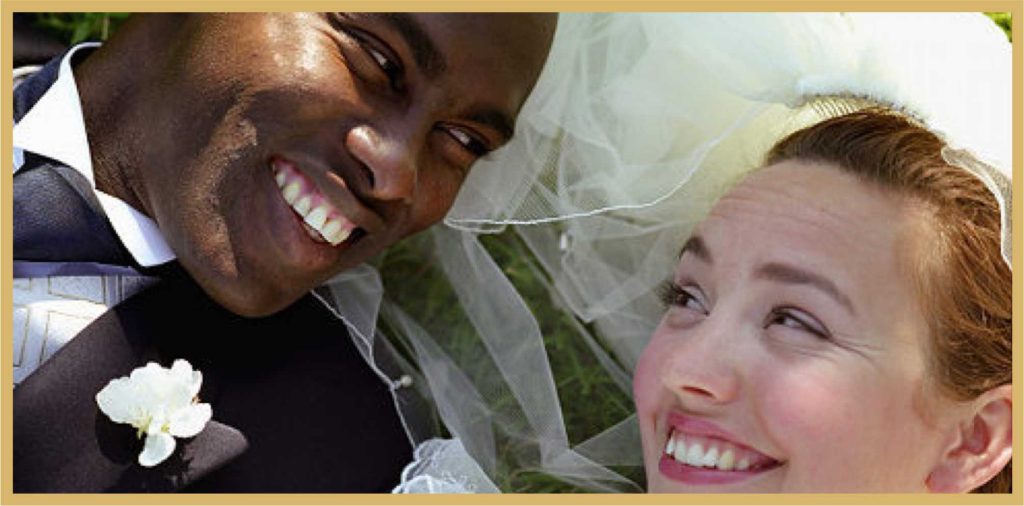Many bridal couples approaching marriage probably know only 3 types of weddings:
- The religious one also called concordat (union before a Catholic minister)
- The civil one (union before a municipal mayor or his or her deputy)
- The symbolic one (union with no civil or religious significance)
However, in this article we want to tell you about 2 other types of marriage that are often not known:
- Non-Catholic
- Of consciousness
Let’s see them in detail!
The non-Catholic marriage
Marriage celebrated before the ministers of cults other than Catholic shall be governed by the provisions of the Civil Code concerning marriage celebrated before the registrar, except as provided by the special law concerning such marriage. In recent years, the Italian government, has signed agreements with representatives of the various denominations in our state. Non-Catholic marriage does not constitute a 3rd class event compared to civil marriage and concordat marriage; in fact, it is a special form of civil marriage, with the difference that it is celebrated by a minister of the non-Catholic cult, who assumes the role of a delegate from the registrar. It should be pointed out that the civil effects of non-Catholic marriage are subject to the transcription of the marriage act in the civil registers. Specifically, then, in the system prepared by the legislation, which is still applicable to denominations that have not entered into agreements, it is required that the minister of worship be an Italian citizen, that his or her appointment by the organs of worship be approved by the Minister of the Interior, and that, in any case, he or she be authorized by the registrar. Neither the minister’s approval nor the civil registrar’s authorization is necessary in the procedure provided for by the Understandings, which, however, requires the celebrant to arrange for the issuance of a clearance attesting to the absence of impediments and the reading of Articles 143, 144, 147 to the bride and groom (a reading that in civil and concordat marriages takes place during the celebration). Otherwise, the rules governing civil marriage apply, both in terms of the conditions necessary to contract marriage and other formalities, and in terms of the rules governing nullity and annulability.

The marriage of conscience
This is a type of marriage rarely used, if only because, by definition, they remain secret.
Marriage of conscience, in fact, is a canonical union qualified as exceptional, so much so that it must be authorized in advance by the bishop. It is always the prelate who eventually authorizes its transcription in the civil status register.
In practice, marriage of conscience is chosen by those who want the blessing of a church minister but do not want it to be known that they are married. That is why it is celebrated in secret. One must give, however, certain circumstances imposed by Canon Law, namely:
- That there is a serious and urgent cause;
- That there is a possibility of conducting the necessary investigations before marriage to find out whether the two applicants can marry;
- That of the celebration the bishop, celebrant, bride and groom, and witnesses keep the secret.
The obligation to keep the secret ceases for the bishop if a grave scandal or grave insult to the sanctity of marriage hangs over its observance.
Marriage of conscience is noted only in the special register kept in the secret archives of the Curia. Unless, as mentioned above, the bishop authorizes the transcription in the civil registry.
That said.
I hope you have found useful insights, ideas and advice on this article, and before we conclude we leave you reminding you that regardless of your beliefs, the ceremony is a passage that binds your hearts, your souls, your love and your lives inextricably (we like to think of it that way) for eternity; So give it special attention, take care of it down to the smallest details from music to readings, from vows to special rites, personalize it as much as you can; It will remain a special memory for you and all your guests who will have been close to you at that moment.
I am Paolo Furlan founder of the music agencies Wedding Symphony specializing in ceremony music and Wedding Music Fun specializing in wedding music and entertainment. Follow our social channels to stay up to date with the latest news and get helpful tips on how to best plan your wedding!
More info awaits you on our blog.
Don’t let them pass you by.
Enjoy your reading and have a good life!

